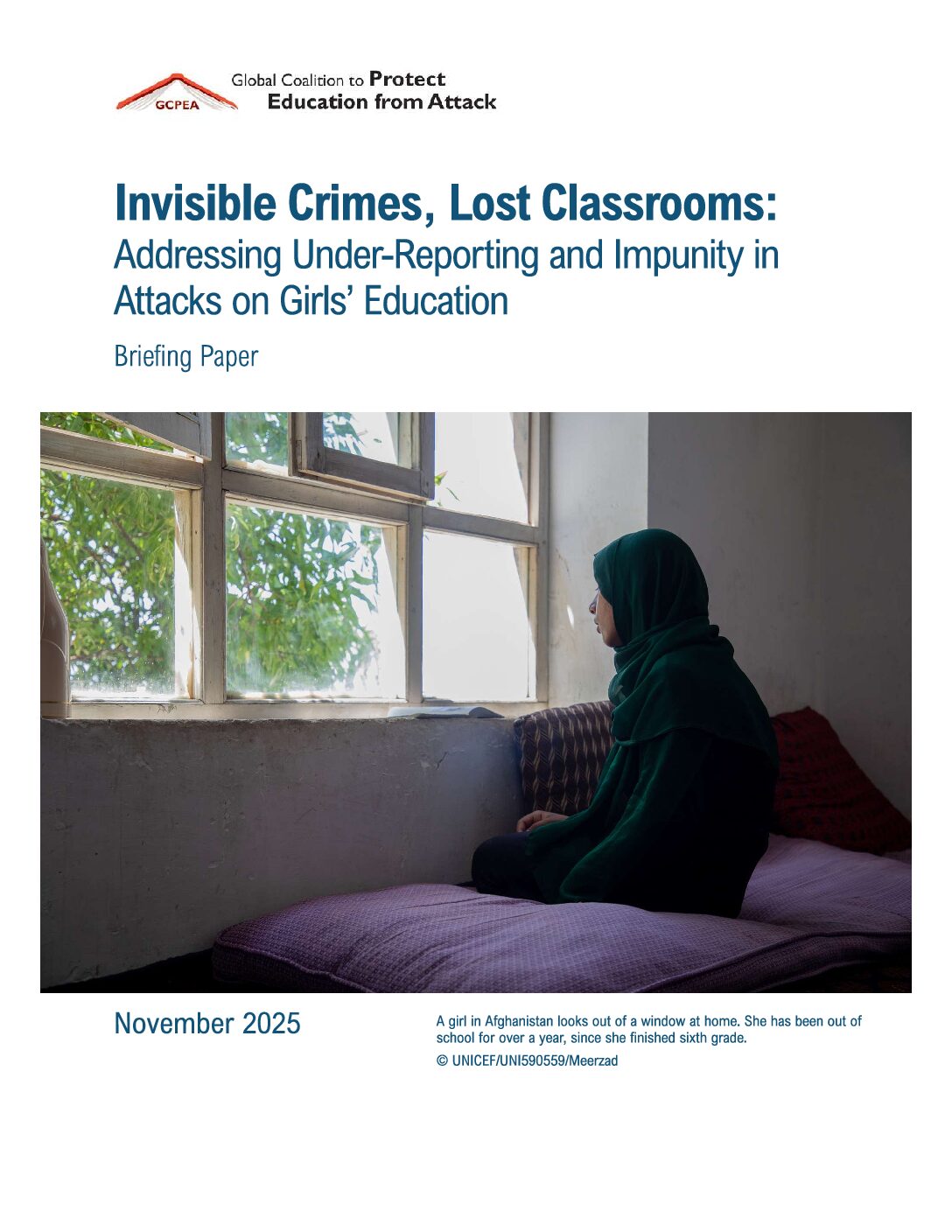New Zealand
New Zealand
Oceania
Endorsements
Endorsed in 2015
Endorsed
Endorsed
Endorsed
Relevant UN Resolutions
GCPEA Education Under Attack
Other GCPEA Publications
Other Important Information
Memberships in International Regional Organizations
Peacekeeping
Key Information
Key information about the country.
Advocacy Engagements
Engagements with this state or any other relevant information that can support advocacy.
2015: Attended the state consultations on the SSD in Geneva – led by Norway + 2015: Present at the First International Conference on the SSD in Oslo.
August 2016: CAAC Open Debate: “The Secretary-General’s latest report (S/2016/360) paints a harrowing picture. I wish to highlight several issues that demand urgent attention. Both schools and hospitals have special protections under international humanitarian law. Yet attacks on schools and hospitals were documented in 19 out of 20 situations of conflict in 2015. Parties to conflict continue to use schools and universities for military purposes, leaving children vulnerable to retaliatory attack. Even where no military attack occurs, the presence of armed forces within schools exposes children to increased risk of sexual violence and of recruitment by armed actors. New Zealand has endorsed the Safe Schools Declaration, as have 52 other Member States. We urge others to do the same.”
January 2017: GCPEA issued a letter to the Foreign Minister of New Zealand, asking him to encourage Pacific states to endorse the Declaration, copied to the Missions in Geneva and New York.
January – March 2017: Member of Core Group in Geneva. Attended several meetings and consistently supportive. Offered to do outreach to pacific states but unclear if this has happened. March 2017: Attended Buenos Aires Conference on Safe Schools.
June 2017: New Zealand introduced language on the Declaration during the negotiations of the Human Rights Council resolution on ending child, early, and forced marriage in humanitarian settings, and received support from several other states. The reference was strongly opposed by Australia, Iran, Russian Federation, and Saudi Arabia. Save the Children Geneva carried out advocacy to states and fellow NGOs for the retention of the reference but it was, unfortunately, deleted. A reference to the issue of attacks on schools was retained in PP 14. The resolution was co-sponsored by more than 80 states.“Strongly condemning attacks on and abductions of all girls, deploring all attacks, including terrorist attacks, on educational institutions, their students and staff, and urging States to protect them from attacks,”
September 2017: GCPEA sent a letter to the ambassador in New York asking to raise the issue on attacks and military use, draw attention to the Declaration and the Guidelines during the Open Debate on children and armed conflict.
March 2018: New Zealand proposed references to the Declaration in operative and preambular paragraphs of Resolution A/HRC/37/L.33
July 2018: At the UNSC Open Debate on children and armed conflict, NZ joined the statement of Canada on behalf of the GoF which mentioned the Safe Schools Declaration.
March 2019: attended GCPEA side-event on “Better Protecting Women and Girls from Attacks on Education” in Geneva.
March 2019: Clustered Interactive Dialogue with the SRSG CAAC Virginia Gamba, HRC Geneva: joined Norway’s joint statement on the Safe Schools Declaration.
May 2019: Participated in the Third International Conference in Palma.
October 2021: cosponsored UNSRC2601.
July 2022: At the UNSC CAAC debate :
– NZ has endorsed the Safe Schools Declaration and urge others to do the same
– Schools are protected civilian objects and should not be attacked
November 2022: Endorsed the Political Declaration on Strengthening the Protection of Civilians from the Humanitarian Consequences Arising from the Use of Explosive Weapons in Populated Areas (EWIPA) on 18 November during an International Conference hosted by Ireland, the leader and penholder behind the Declaration.
Good Practice
What, if anything, the country has done to protect education and/or implement any of the 8 commitments outlined in the Declaration.
New Zealand updated its military manual including explicit protections for schools from military use. It highlights the importance of protecting education and calls for military use of educational infrastructure to be avoided unless absolutely necessary, with a footnote to the Declaration and Guidelines. It also says that schools that have become military targets may only be attacked if “imperatively demanded by military necessity”, which is in line with Guideline 4. “Use and occupation of schools and other educational institutions obviously inhibits the exercise of this right [to education] and is to be avoided wherever possible… [Defence forces] are not to use school buildings or facilities for military purposes unless it is absolutely necessary.” – Manual of Armed Forces Law, volume 4, 2019.
None
None
None
None
None
None
None
None
Not established
Relevant Contacts
Contact information of the representatives of Permanent Missions, national Ministries, and focal points for the State-led Implementation Network.
General Email(s):
mission.nz@bluewin.ch
Other Contacts:
Mrs. Emma McWhinnie HODDER
First Secretary
Emma.Hodder@mfat.govt.nz
General Email(s):
nzpmun@gmail.com
Other Contacts:
None
None
None



